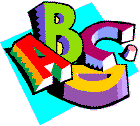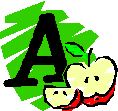...inicio...
Presentación
CURSO de Aprendizaje
Gramática
Listening
Libros
Lecturas
Programas
Ejercicios
Práctica
Recursos
y Actividades
Vocabulario
Teachers
First Certificate
Enlaces
Tablón de Anuncios
Servicios
Chat
Diccionario
Traducción
| Ahora
puedes tener La Mansión del Inglés en CD Rom |
| - ··· - |
| Consigue más de 150 programas Freeware y Shareware para mejorar tu Inglés |
Teaching Vocabulary (1)
(by Craig Wealand)
People in ‘the know’ say that knowing a word may mean more than you know.
A student recognizes a word in a written or spoken text and thinks, ‘I know that word’,
but can they also:-
·
Bring it to mind when they need it?·
Use it in the correct grammatical form? (prefix/suffix/verb inflection/word class)·
Pronounce it properly?·
Spell it correctly?·
Use it with the words it usually goes with (collocation)?·
Use it at the appropriate level of formality?·
Relate it to something? (know its meaning)·
Be aware of its connotations and associations? As a native speaker, I’d have trouble with some of the above points for
quite a few items in my vocabulary. Needless to say our students have quite a
job on their hands.
As a native speaker, I’d have trouble with some of the above points for
quite a few items in my vocabulary. Needless to say our students have quite a
job on their hands.
Words are like telephone numbers, credit card numbers, car licence plate numbers, bank account PIN numbers, the more we see them, repeat them and use them, the more we’re likely to remember them. If we recycle vocabulary in interesting and imaginative ways for our students, some of it should, eventually, stick ( The ‘Pebble-dash Approach’? ).
In the wake of a general shift in EFL from a grammar to a vocabulary focus, the following ideas may come in handy.
These activities may be of use to teachers whose students would rather take a dictionary on holiday with them than a grammar book.
Activities for reviewing and revising lexis:-
SS = students T = teacher
1. Noughts and Crosses
T writes the vocab. To be revised on the board in a noughts and crosses grid (9 vocab. Items).
Divide SS into two teams, one noughts and the other crosses.
Toss a coin to see which team starts and nominate a ‘volunteer’ to chose any word from the grid.
That S must use the word in a
correct sentence and show the meaning in the context of the sentence. Be strict. The sentence must sound normal to your ears, otherwise the word gets thrown over to the other team for them to try.When a correct sentence is provided, rub out the word and replace it with a nought or cross depending on the team.
Now it’s the other teams chance to pick a word. The team with three 0’s or X’s in a row wins.
I usually elicit/re-present any words remaining in the grid after the game has finished, as they are likely to be the ones SS don’t know yet.
Note
: Lexical items could be a collection of verbs, phrasal verbs, nouns, adjectives, expressions, idioms, vocab. from text etc.2. Back To The Board
Divide the class into two teams (A and B).
Chose a S from each team to move his/her chair so that the SS have their backs to the board and are facing their team mates.
T writes a word or phrase on the board and both teams try to describe it to their team mates at the same time.
The first to correctly reproduce what’s on the board gets a point. Insist on passable pronunciation.
Rub the word out and put another one up. Keep the pace snappy. Rotate the SS periodically so that everyone gets a chance in the team ‘hot seat’.
Deduct points for team members saying the word as soon as you’ve written it (it’s easily done), and for team reps. turning round to look at the board and using mirrors, L1 etc.
3. Board Run
Works well with kids and company executives.
Put Ss in teams (two, three, four depending on class size) and line them up facing the board. Give the first S in each line a board pen.
T describes a word or phrase. The first S to run to the board and write the word legibly scores a point. Tripping, holding and biting is allowed, but the word/phrase must be written correctly.
4. Chain Story
T writes vocab. To be revised on the board. T uses the first item of vocab. In a sentence to start off a story. SS continue the story around the class using vocab. From board in( or out of ) sequence.
4. Waiting For Late Arrivals
Just write a list on the board and get SS to define the word, translate it to L1 or put it in a sentence.
If your class really dribbles in slowly, dictate the list for spelling and get the SS to dictate back to another SS who writes the list on the board for you.
5. Click Your Fingers
Get SS on their feet and in a circle. Start clicking or clapping, and on the third ‘beat’
Nominate a S who has to say a word from last lesson.
This works best with groups of words, e.g. Professions, Forms of transport, Phrasal verbs, Sports, Words beginning with ‘P’ etc.
When a S can’t provide a word within reasonable hesitation time ( a second?), or repeats a word already said by another S, he/she is ‘out’ and sits down.
Who’s left standing at the end?
6. Throw Them Away
Similar to 2, but done in pairs not open class.
Give SS slips of paper with vocab on. SS define words to their partner, and throw them away when their partner guesses. The first S to throw away all their slips of paper wins.
I find there’s a great sense of satisfaction to be had crossing out or throwing away words already learnt. (Peering through pencil marks and searching the rubbish bin is another matter, but all part of the process.)
7. Vocab. Box
Speaking of slips of paper, why not start a vocab. box at the beginning, or in the middle, of the course?
Choose a S and give him/her the responsibility of writing down on slips of paper all new words during the lesson. At the end of the lesson put the words/phrases in a box or bag and next lesson the responsibility passes to another S.
If a S misses a lesson, the box can be checked for any new words.
SS can see their vocabulary expanding. If not in their heads, at least in the box.
Periodically vocab. can be revised using one of the activities here, or your own, or give a formal test.
Decide if the SS need to write phonetic transcriptions of the word, word group (noun, adjective. verb etc.), dependent prepositions, context sentence, prefix/suffix etc.
If you’ve found this list useful, please send us your classroom ideas. If they’re any good, we’ll put them on the web page and share them with the world!
Craig Wealand
© Copyright 2001 Craig Wealand & Domingo Blanco - Todos los Derechos Reservados. -
